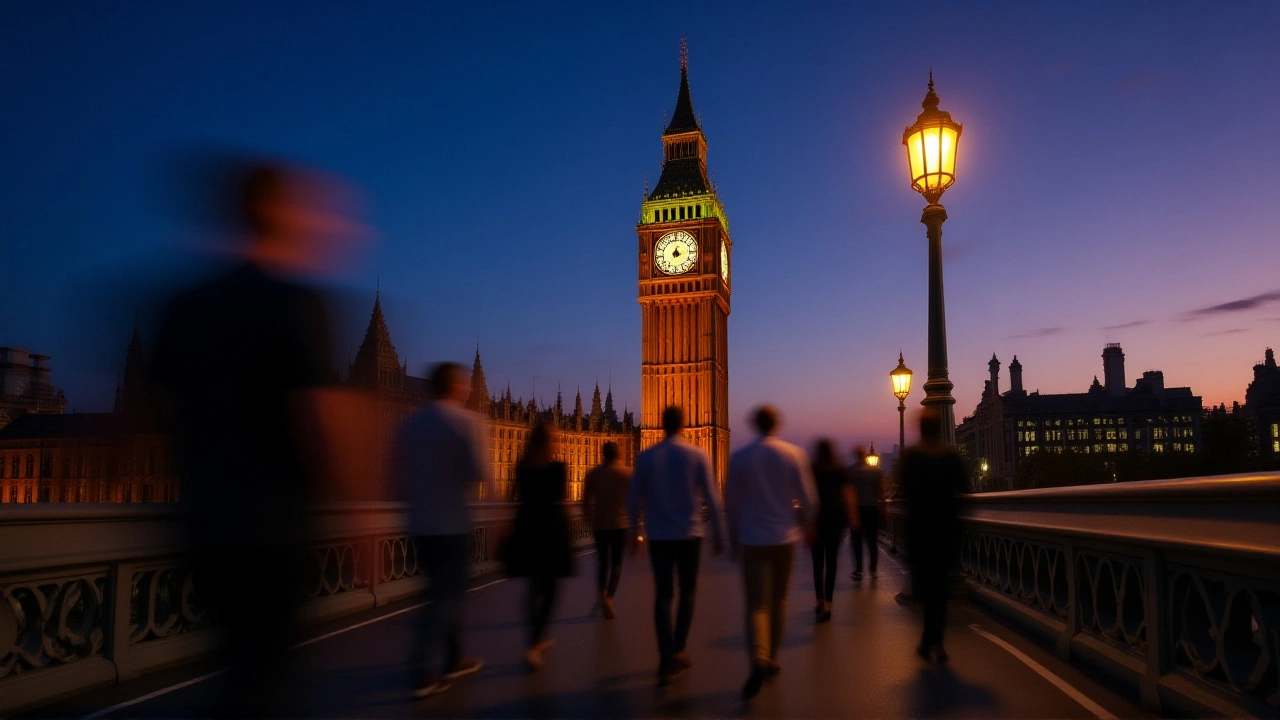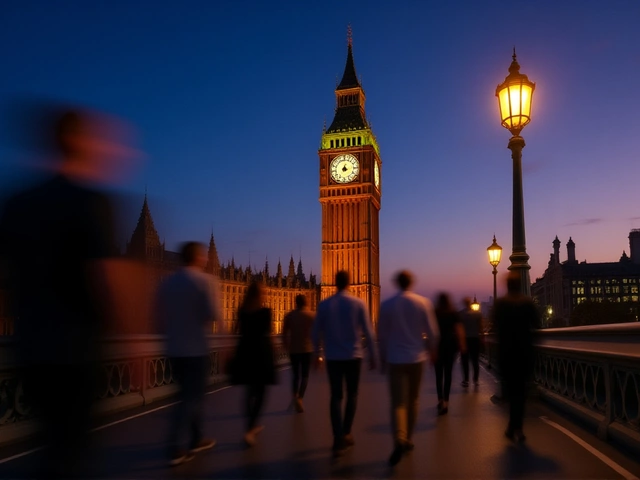When Rachel Reeves abandoned planned income tax increases just weeks before the Autumn Budget 2025House of Commons, investors didn’t just raise an eyebrow—they ran for the exits. On November 14, 2025, The Phoenix Group and Morningstar, Inc. confirmed what markets had already sensed: a £20 billion fiscal hole just got wider, and the Chancellor’s U-turn on taxes sent gilts and stocks tumbling. Yields on UK government bonds jumped 10–15 basis points overnight. The FTSE 100 dipped 0.8%. And suddenly, the promise of "fiscal responsibility" sounded a lot like political convenience.
Why Investors Lost Faith
Just weeks before, the market had been humming. From October through mid-November, gilt yields had fallen 25–30 basis points—outperforming Germany and France. Why? Inflation was cooling. Wage growth was stabilizing. And the government, under Reeves, had signaled it wouldn’t go full austerity. Investors thought they were getting a balanced, thoughtful approach. Then came the reversal. The twist? Reeves didn’t just scale back tax hikes—she scrapped them entirely. The original plan, as outlined in the Spring Statement 2025, was to raise income tax across all three bands, potentially bringing in just over £20 billion. That number was already tight. But then came the £6 billion bombshell: the government had to claw back money it’d saved by cutting winter fuel payments and overhauling welfare. Those reversals, announced after March 26, 2025, forced a fiscal rethink. Suddenly, the £20–30 billion gap was now a £20 billion one—with £6 billion already spent.The "Smorgasbord" Solution
Instead of raising income tax, Reeves pivoted to a patchwork of smaller levies. The centerpiece? A two-year freeze on income tax thresholds. That’s not a tax cut—it’s a stealth tax hike. As wages rise with inflation, more people get pushed into higher brackets without any change in law. It’s projected to raise £10.4 billion. But it’s also deeply unpopular. Middle-income earners feel squeezed. Pensioners see their savings eroded. And now, the government is betting on a menu of niche taxes to make up the rest: higher council tax on G and H band properties (the most expensive 0.5% of homes), a pay-per-mile tax on electric vehicles, and reforms to gambling duties. Here’s the problem: no one knows how much those will raise. The Phoenix Group called it a "smorgasbord," and warned that complexity breeds unpredictability. "All taxes hit economic activity," their analysts wrote. "But changes to income tax are predictable. Changes to gambling or EV taxes? Those can backfire. Suddenly, you’re discouraging green adoption or driving punters offshore. That’s not policy—it’s guesswork."The OBR’s Shadow
Behind every fiscal decision is the Office for Budget Responsibility—the independent watchdog that calls the shots on economic forecasts. In October, it downgraded its UK productivity growth projection for the next decade. That’s not just a number. It means less tax revenue over time. Fewer people working more efficiently. Slower wage growth. And less room to maneuver. Reeves’ team now has to fill a £20 billion gap with shrinking economic headroom. The OBR didn’t cause the problem—but its downgrade made the solution far harder.Market Reactions: Bonds, Stocks, and Sentiment
When gilt yields rise, bond prices fall. That’s basic math. But the human impact? Pension funds, insurance companies, and local authorities holding UK debt suddenly saw their portfolios lose value. The Phoenix Group, which manages £200 billion in retirement assets, told clients: "Investors don’t hate tax increases. They hate unpredictability." The FTSE 100’s drop was modest, but the real damage was in sentiment. Institutional investors are now pricing in a 40% chance of another U-turn before December. That’s high for the UK, where fiscal credibility has long been a selling point. Even the Bank of England’s hint at potential rate cuts in 2026—once a bullish signal—is now being viewed through a lens of doubt. "If the Chancellor can’t stick to a tax plan," one London-based fund manager told us, "why would we trust her on interest rates?"
What’s Next? The Budget Tightrope
The Autumn Budget 2025House of Commons is scheduled for late November. The pressure is on Reeves to deliver something that looks like a plan—not a scramble. But here’s the catch: the public is tired of tax hikes. The polls show 62% oppose raising income tax. Yet 58% support higher taxes on the wealthy, EVs, and gambling. That’s the tightrope. The government’s next move will be watched closely. Will the EV mileage tax be rolled out in cities first? Will council tax hikes be phased in? Will gambling tax changes target online operators or physical betting shops? These aren’t just policy details—they’re economic signals. Miss the mark, and you get another market sell-off. Get it right, and you might just restore confidence.Historical Echoes
This isn’t the first time a Chancellor’s tax flip-flop rattled markets. In 2012, George Osborne scrapped the 50p top rate of income tax after backlash from business leaders. The revenue shortfall? £2.3 billion. In 2017, Theresa May’s social care tax plan collapsed after a public outcry. The cost? A £1.7 billion hole. Both times, the government scrambled with complex alternatives—and both times, the markets reacted poorly. Reeves is walking the same path. The difference now? The UK’s public debt is at 99% of GDP. Productivity is stagnant. And inflation, while lower, still bites. There’s no room for error. Or for optics.Frequently Asked Questions
How does the two-year freeze on income tax thresholds affect ordinary workers?
The freeze means income tax bands don’t rise with inflation. As wages increase, more people get pushed into higher tax brackets without any real raise. For example, someone earning £35,000 in 2025 could pay £500 more in tax by 2027 simply because their pay rose 3% annually. This "fiscal drag" raises £10.4 billion but feels like a hidden tax hike to middle-income earners.
Why did gilt yields rise after the tax U-turn?
Gilt yields rise when investors demand higher returns to compensate for perceived risk. Reeves’ reversal signaled fiscal unpredictability, making UK government bonds less attractive. With the £20 billion gap still open and no clear plan to close it, investors sold gilts, pushing prices down and yields up by 10–15 basis points—equivalent to a 0.1–0.15% increase in borrowing costs for the government.
What’s the risk of the EV pay-per-mile tax?
The EV tax could discourage adoption of cleaner vehicles, undermining climate goals. If drivers perceive it as punitive, they may delay switching from petrol cars—or drive less, hurting retail and transport sectors. The tax’s design matters: if it’s based on distance traveled in urban zones, it might work. But if it’s a flat rate, it could backfire, especially in rural areas where EVs are essential.
How does the OBR’s productivity forecast impact the budget?
Lower productivity means slower wage growth and fewer people in higher tax brackets. The OBR’s downgrade suggests the UK economy will generate less tax revenue over the next decade than previously expected. That shrinks the fiscal space Reeves has to work with—making every pound of new tax or spending cut more critical. Without productivity gains, austerity or tax hikes become the only tools left.
Could Reeves still raise income tax later in 2026?
Absolutely. The Autumn Budget 2025 is a stopgap. With £20 billion still unaccounted for and no new growth levers in sight, many analysts expect a 2026 tax review. If inflation rebounds or public spending pressures grow, Reeves may have no choice but to revisit income tax—especially if the "smorgasbord" taxes fall short. Markets are already pricing in that risk.
What’s the political cost of this U-turn for Labour?
Labour campaigned on fairness and fiscal responsibility. Scrapping income tax hikes—especially after promising to protect public services—looks like a retreat. Voters may question whether the party can make hard choices. Meanwhile, the Conservatives are already attacking the "£20 billion black hole" as evidence of poor planning. The political fallout could shape next year’s local elections.


